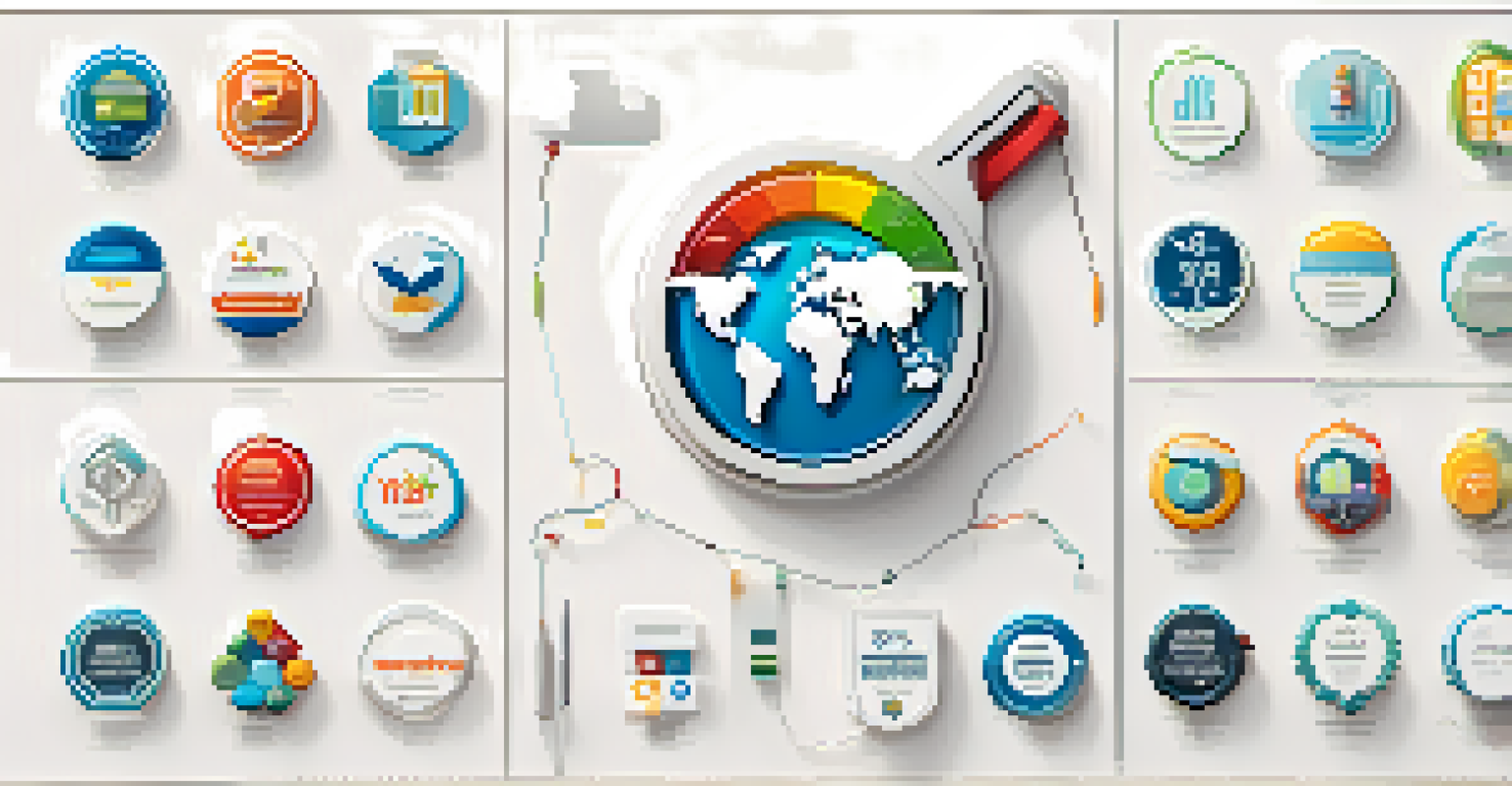Micro-Credentials: Encouraging Self-Directed Learning

What Are Micro-Credentials and Why Do They Matter?
Micro-credentials are bite-sized qualifications that signify mastery in a specific skill or knowledge area. Unlike traditional degrees, they are often more flexible and can be earned online, making education accessible to a wider audience. This approach allows learners to focus on what they truly need, encouraging a more personalized learning journey.
Education is the most powerful weapon which you can use to change the world.
The importance of micro-credentials lies in their ability to validate skills in a rapidly changing job market. Employers increasingly value these credentials as evidence of capability rather than relying solely on traditional degrees. This shift not only opens doors for individuals but also aligns education with real-world demands.
Moreover, micro-credentials promote lifelong learning, a crucial aspect in today’s fast-paced world. As industries evolve, the need for continuous skill development becomes evident. Micro-credentials serve as a practical solution, allowing learners to adapt and grow without the commitment of lengthy programs.
The Benefits of Self-Directed Learning Through Micro-Credentials
Self-directed learning empowers individuals to take control of their educational paths, and micro-credentials enhance this experience. Learners can choose what skills to acquire based on their personal interests and career goals, fostering a sense of ownership. This autonomy often results in increased motivation and engagement.

Additionally, micro-credentials allow for flexible learning schedules that fit into busy lifestyles. Whether you're a full-time employee or a parent, you can learn at your own pace and on your own terms. This flexibility is a game-changer, helping to break down barriers that often hinder education.
Micro-Credentials Enhance Skills
Micro-credentials provide flexible, bite-sized qualifications that validate specific skills, making education more accessible and aligned with industry needs.
Lastly, self-directed learning through micro-credentials encourages critical thinking and problem-solving skills. As learners navigate their own educational journeys, they develop the ability to analyze information and make informed decisions. These skills are invaluable in both personal and professional contexts.
How Micro-Credentials Align with Industry Needs
Micro-credentials are designed with industry relevance in mind. Many programs are developed in collaboration with employers, ensuring that the skills being taught are exactly what the job market demands. This alignment increases the likelihood of employability for learners who earn these credentials.
The future belongs to those who believe in the beauty of their dreams.
For instance, a tech company might partner with an educational institution to create a micro-credential in cybersecurity. This collaboration ensures that learners are gaining skills that are not just theoretical but also practical and applicable in real-world scenarios. Such partnerships bridge the gap between education and employment.
As industries continue to evolve, micro-credentials can be updated to reflect new trends and technologies. This adaptability ensures that learners are always equipped with the latest skills, keeping them competitive in their fields. In essence, micro-credentials are a dynamic solution to an ever-changing workforce landscape.
Choosing the Right Micro-Credentials for Your Learning Goals
With countless micro-credential options available, selecting the right one can be overwhelming. Start by identifying your learning objectives and career aspirations. Consider what skills will be most beneficial for your current job or future endeavors; this focus will narrow down your choices significantly.
Next, research the credibility of the providers offering these micro-credentials. Look for programs that are recognized by industry leaders or accredited institutions. This can make a significant difference in how your credentials are perceived by employers.
Self-Directed Learning Empowers
By allowing individuals to choose their learning paths, micro-credentials foster motivation and engagement, crucial for personal and professional growth.
Finally, think about your preferred learning style. Some people thrive in interactive, hands-on environments, while others prefer self-paced study. Choose micro-credentials that align with your learning preferences to enhance your overall experience and retention of knowledge.
Overcoming Challenges in Self-Directed Learning
While self-directed learning offers many benefits, it can also present challenges. One common hurdle is the lack of structure and accountability that traditional education provides. Without a set schedule, some learners may struggle to stay motivated and consistent.
To overcome this, setting specific goals and deadlines can be incredibly helpful. By creating a structured plan for your learning, you can maintain momentum and track your progress. Additionally, seeking out study groups or online communities can provide support and encouragement.
Another challenge is the potential for information overload. With so many resources available, it can be difficult to determine which ones are the most valuable. Curating a list of trusted sources and focusing on quality over quantity can streamline your learning process and make it more effective.
The Future of Micro-Credentials in Education
The landscape of education is changing, and micro-credentials are at the forefront of this transformation. As more learners seek flexible, targeted learning options, the demand for micro-credentials is expected to grow. Educational institutions are beginning to recognize this trend and are incorporating micro-credentials into their offerings.
In the future, we may see even more innovative formats for micro-credentials, including digital badges and blockchain-based certifications. These advancements can enhance the visibility and verification of credentials in a digital world, making it easier for employers to recognize and validate skills.
Future of Learning with Micro-Credentials
As education evolves, micro-credentials are redefining traditional paradigms, emphasizing adaptability and lifelong learning in a rapidly changing job market.
Ultimately, as micro-credentials gain traction, they may redefine traditional education paradigms. By emphasizing skills and practical knowledge, they encourage a shift towards a more learner-centric approach, where the focus is on lifelong learning and adaptability in an evolving job market.
Conclusion: Embracing Self-Directed Learning with Micro-Credentials
In conclusion, micro-credentials offer a powerful pathway for individuals seeking to enhance their skills through self-directed learning. By providing flexibility, industry relevance, and a focus on personal goals, they empower learners to take charge of their education. This shift not only benefits individuals but also aligns with the needs of modern employers.
As we navigate an increasingly complex job market, the importance of continuous learning becomes clear. Micro-credentials equip learners with the tools they need to stay competitive and adaptable, fostering a culture of lifelong education. Embracing this approach can lead to greater career satisfaction and success.

So, whether you’re looking to upskill in your current role or explore new career paths, consider diving into the world of micro-credentials. With the right mindset and resources, you can unlock new opportunities and take control of your learning journey.